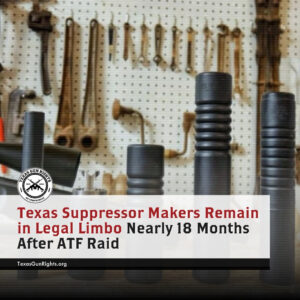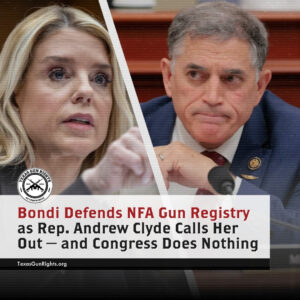Actor and Hollywood legend Mel Gibson has become the unlikely face of the fight to restore gun rights for those convicted of past offenses.
But his battle took a controversial turn when Justice Department Pardon Attorney Liz Oyer claimed she was fired for refusing to recommend that Gibson’s gun rights be restored.
Gibson’s situation has rekindled the national debate over whether certain individuals should have their firearm rights restored, particularly non-violent offenders who have served their time.
Restoring Gun Rights for Felons in Texas
While Gibson’s case has ignited a national conversation, there are also ongoing efforts in Texas to restore gun rights to certain non-violent felons.
Under HB 2759, Texans who have been convicted of non-violent felonies would have their Second Amendment rights restored once they have completed their sentence, allowing them to lawfully purchase and own firearms.
The Bigger Picture
Gibson’s case, along with HB 2759 in Texas, highlights a growing divide over how Second Amendment rights should be handled when it comes to former offenders. Should someone convicted of a non-violent crime decades ago be stripped of their rights forever? And should there be a pathway for those with past convictions to fully restore their constitutional freedoms?
In Texas, HB 2759 is gaining traction, with supporters arguing that once a non-violent felon has served their time, they should have the same rights as any other law-abiding citizen. But just like Gibson’s case, the bill has sparked pushback from anti-gun activists, who claim that any loosening of firearm restrictions is a public safety risk.
What’s Next?
As Mel Gibson fights for his gun rights, and Texas lawmakers debate HB 2759, the battle over who gets to exercise their Second Amendment rights continues to heat up. Whether at the federal level or in state legislatures, one thing is certain—this debate isn’t going away anytime soon.







